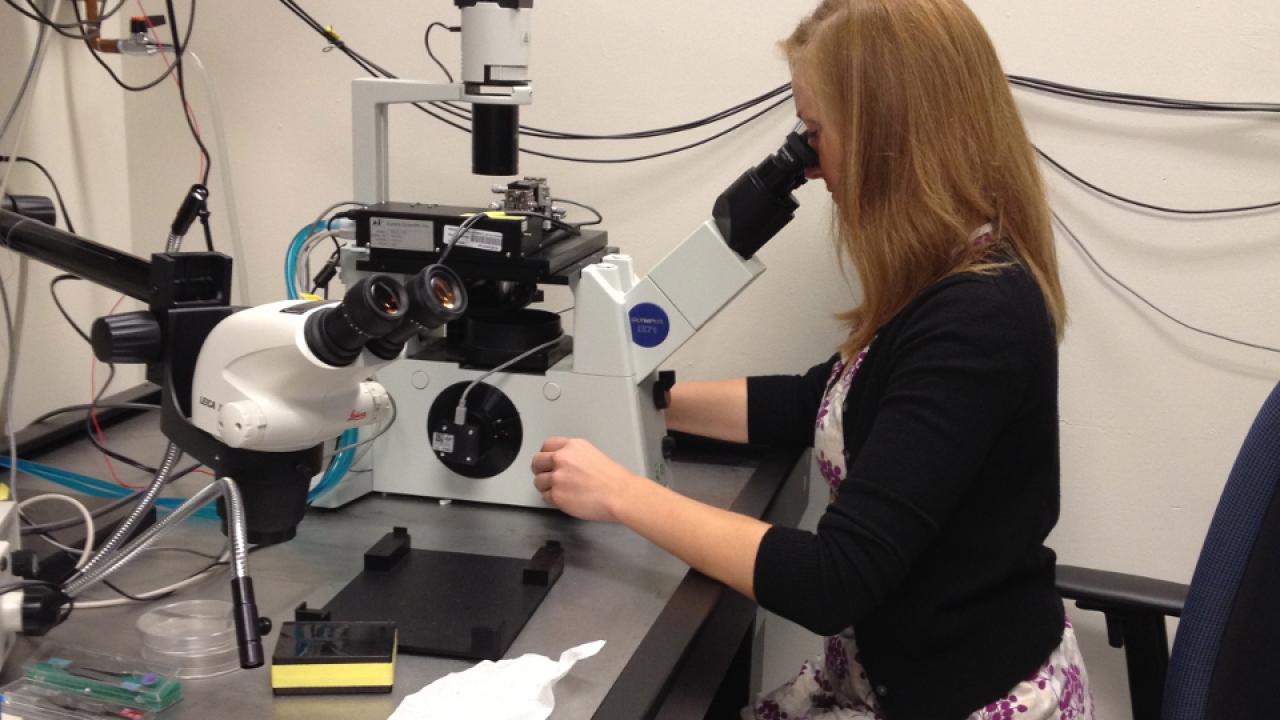
Kristina Bezold
What matters to Kristina?
Quick Summary
- Discovering how the body works as a means to learn how to treat disease.
“I have always been interested in physiology and medicine,” said Kristina Bezold, a doctoral candidate in the Molecular, Cellular and Integrative Physiology Graduate Group at UC Davis. Originally planning to go to medical school, Bezold changed her mind when she discovered her real passion during her undergraduate studies. “I was drawn to discovering how the body works as a means to learn how to treat disease instead of doing the actual treatment myself.”
Bezold’s research “focuses on understanding the regulation of cardiac muscle contraction by a muscle protein called myosin binding protein C,” she shared. “I aim to understand how the protein functions in normal hearts and in diseased hearts. Myosin binding protein C mutations are a leading cause of hypertrophic cardiomyopathy, which affects 1 out of 500 people worldwide.”
Her group collaborates with various faculties on campus, including medical doctors. She attributes the strengths of her projects to the perspectives she receives from these collaborations. “It’s also made me a better researcher,” she added.
Her projects have received support from a National Defense Science and Engineering Graduate fellowship from the Department of Defense, which fully funded her second through fourth years; an American Heart Association pre-doctoral fellowship, which has funded most of her last year; and an Achievement Rewards for College Scientists fellowship. “These fellowships have provided me the freedom to explore my own research interests and develop my scientific identity,” says Bezold.
Inspiring others around her to understand and respect the value of science is one of Bezold’s primary goals. “I hope to do this either as a teacher or as a mentor to students in a laboratory setting,” she adds. In the end, she wants to be able to help those with heart disease by contributing to therapeutic treatments.
Bezold is looking to continue her education through a postdoc, “that would extend my basic scientific research to more translational heart research – where I can directly develop treatments for heart diseases.”
Bezold is involved in many activities outside of the lab. She’s a member of the Linda Bair Dance Company, an avid runner, cyclist, climber and skier. Basically, she enjoys workouts that target the most important muscle of all: the heart.
Photo: Bezold is examining a very small piece of heart tissue that she has tied between a force transducer and a motor to measure force production and rate of contraction. Photo credit: Linda Lee.
